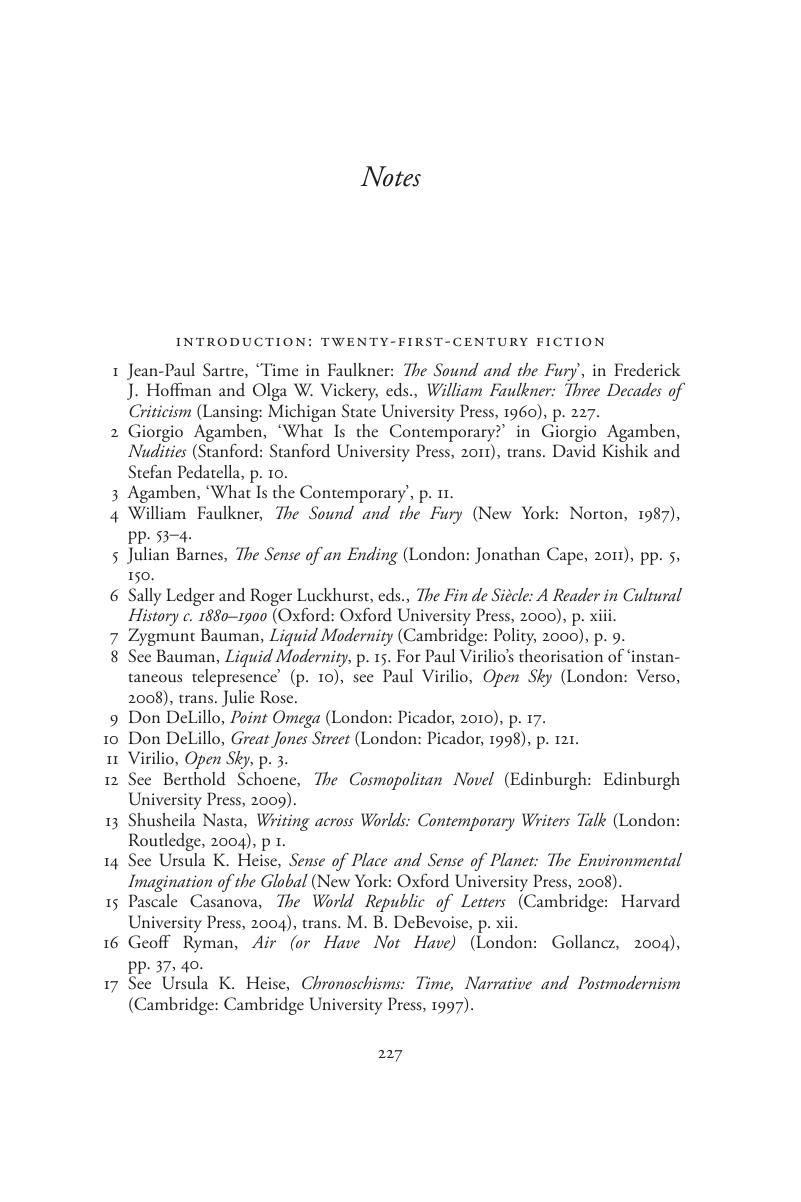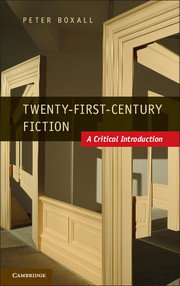Book contents
- Frontmatter
- Dedication
- Miscellaneous frontmatter
- Contents
- Illustrations
- Acknowledgements
- Introduction Twenty-First-Century Fiction
- 1 Late Culture in the Early Twenty-First Century
- 2 Inheriting the Past
- 3 The Limits of the Human
- 4 A Curious Knot
- 5 Sovereignty, Democracy, Globalisation
- Conclusion The Future of the Novel
- Notes
- Bibliography
- Index
- References
- Frontmatter
- Dedication
- Miscellaneous frontmatter
- Contents
- Illustrations
- Acknowledgements
- Introduction Twenty-First-Century Fiction
- 1 Late Culture in the Early Twenty-First Century
- 2 Inheriting the Past
- 3 The Limits of the Human
- 4 A Curious Knot
- 5 Sovereignty, Democracy, Globalisation
- Conclusion The Future of the Novel
- Notes
- Bibliography
- Index
- References
Summary

- Type
- Chapter
- Information
- Twenty-First-Century FictionA Critical Introduction, pp. 227 - 244Publisher: Cambridge University PressPrint publication year: 2013

